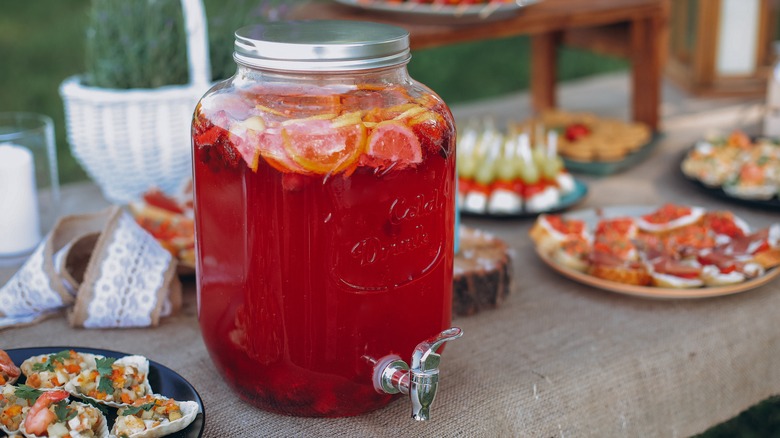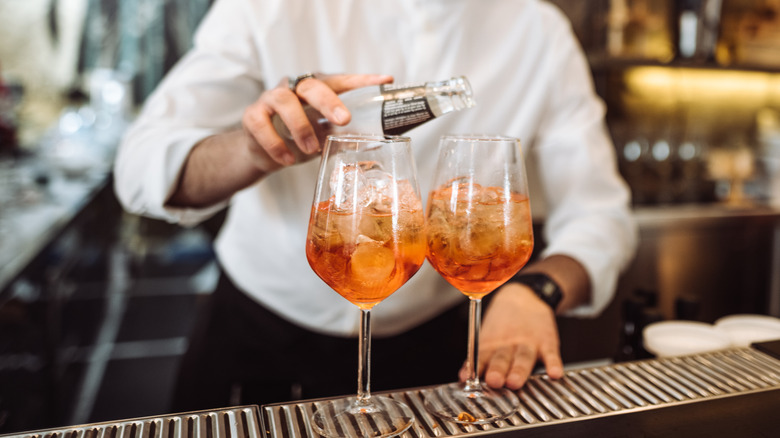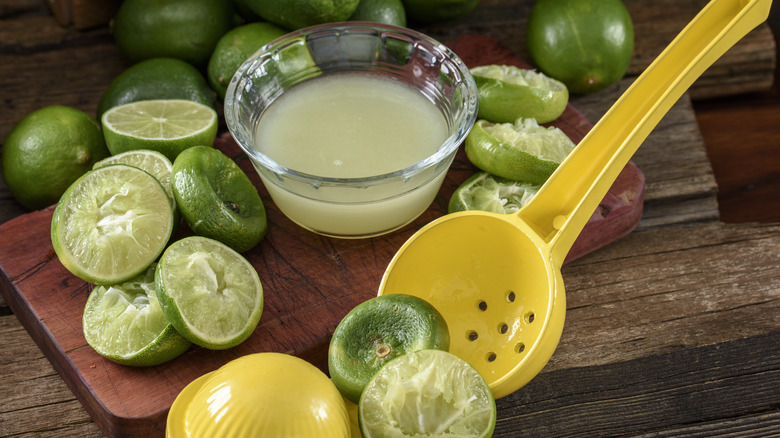The Rule You Shouldn't Break When Preparing Fizzy Batch Cocktails
Batched cocktails, though essentially the grown-up version of punch, are a lifesaver when hosting since they allow you to prep your drinks in advance, so you can simply ladle them out to each guest. This totally beats spending five minutes (or more) carefully measuring everything out for each person or getting lost in customizing the drink for every guest's tastes.
Some drinks are easier to batch than others, though. Stiff drinks like Manhattans or Martinis don't take up a lot of space and can be easily stored in a few mason jars in your fridge or freezer. (Though you'll want to remember to add ice before serving so they don't kick your teeth in.) Simple cocktails like palomas, margaritas, mojitos, and screwdrivers can also be prepped in advance and poured over ice.
You might even consider freezing ice cubes of orange juice, lime juice, or grapefruit juice and simply adding your spirit over these cubes to prevent watering down your drink. But there are two ingredients you should never add to batched cocktails in advance: carbonated beverages and fresh citrus juice.
Save the fizz for last
The whole point of topping a drink with something carbonated is to give it that added effervescence that brings the whole thing together. Just think about the last time you left a spritz unattended for too long, and came back to find it flat and waterlogged. The fizz in sparkling wine comes from carbon dioxide that is trapped under pressure in the bottle, and exposing the wine to oxygen causes the bubbles of carbon dioxide to escape.
If you really want to make sure that your cocktails stay extra fizzy, make sure to pop your champagne or cava right before you serve your drinks. Serving it in champagne flutes or other narrow glasses will keep it bubbly for longer since wider glasses will allow your carbon dioxide bubbles to escape more quickly.
The same rules apply to soda, seltzer, beer, or any other kind of fizzy topping. Moscow Mules, for example, are difficult to batch, because both lime juice and ginger beer need to be added to the vodka right before serving. But if you wanted to batch, say, a Long Island Iced Tea (God have mercy on your soul), you could measure and store the vodka, rum, tequila, gin, simple syrup, and triple sec, and add the lime juice and Coke at the last minute.
Wait to add the citrus
As champagne deteriorates when exposed to oxygen, so does citrus juice. Fresh lemon or lime juice is only good for about three days in the fridge after it's been juiced, but the flavor will slowly worsen over time. So when adding fresh citrus juice to batched cocktails, wait until they are about to be consumed before busting out that citrus reamer. (The same rule applies to cooking with lemon juice. Always add it last, just before serving, to avoid a funky, bitter flavor.)
If you want to avoid the extra last-minute prep, feel free to use a store-bought juice or bottled lemon or lime juice. The flavor won't be as pure, and there's the extra sugar in juice to consider, but if you're pressed for time, it can really be a lifesaver. After all, do you really want to juice enough lemons for ten or fifteen cocktails?



